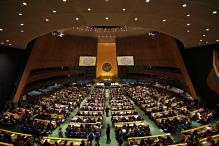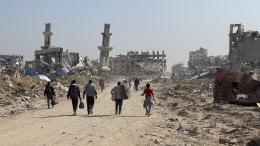Amid growing geopolitical tensions, persistent conflict and declining support for multilateral approaches, calls for a reimagining of United Nations (UN) peace operations are intensifying. In 2025, the UN system has undertaken a comprehensive reassessment of peace operations, alongside the Secretary-General’s UN80 initiative, aimed at identifying reforms and improving effectiveness across the UN system. These efforts are unfolding against the backdrop of heightened great power rivalries and tensions, but also declining political backing and resources for peace operations.
While the need for peace operations is unlikely to diminish given global conflict dynamics, the nature of future missions will likely need to reflect the political and operational realities of the moment. This discussion paper argues that in this context, a return to "essential peace operations" – with clear and more limited mandates, tasks and support structures – may be the more viable and effective path forward. The case of the United Nations Emergency Force (UNEF), deployed in response to the 1956 Suez Crisis, offers lessons for today’s landscape. Authorized by the General Assembly due to tensions among the permanent members of the Security Council, UNEF demonstrated that more limited, focused missions may be successful in winning buy-in despite heightened geopolitical tensions and can nonetheless make significant contributions to defusing and resolving major crises.
Access “Essential Peacekeeping for a Divided World: Lessons and Insights from the UN Emergency Force in Suez” here.




